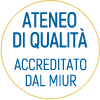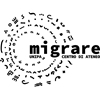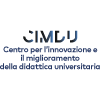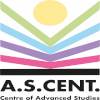Faculty of Economics

LM- 82 – STATISTICAL SCIENCE
LM- 82 – SCIENZE STATISTICHE
Educational objectives – professional opportunities for graduates
The 2nd cycle Degree Course in Statistical aims at educating graduates who, thanks to their solid grounding in mathematics, probability, statistics and computer data processing, are able to work in various applicative sectors, with autonomy and responsibility, and to fit in the labour market as qualified experts, prepared for the production, processing and analysis of highly diversified information flows.
.
The educational programme is characterized by a common bulk of advanced courses in mathematical, probability and statistical subjects. The Course is structured in two curricula related, respectively, to Economics, Business and Finance, and to Social, Bio-statistical and Environmental issues. Particular attention is paid to teaching modes which include, besides traditional lectures, workshops and optional practice periods, organized in order to develop an adequate critical approach towards the process of data generation and the use of theories and methods, with respect to the nature and meaning of available data.
2nd cycle graduates in Statistics may hold high responsibility positions in public administration, planning and experimentation branches of companies in the biomedical, epidemiological ecologic-environmental sectors as well as in the statistical branches of large and medium-sized companies, in the marketing branches of production and distribution companies, in information systems companies and in statistic consulting companies which give external support both to private and public companies, and work in public and private research centres and institutes.
In such working context, 2nd cycle graduates in Statistics might carry out activities such as:
- planning of complex statistical surveys related to specific specialisation fields;
- planning and verification of the results of experiments and controlled clinical tests;
- design and implementation of evaluation activities for the quality management and assessment of performances;
- certification of statistical data to be published or used in the statistical surveys;
- certification of statistical the methodologies and techniques used for specific surveys;
- data analysis and formalisation of mathematical/statistic models for investigating phenomena and carrying out predictions in various applicative ambits;
- design and creation, under the statistical point of view, of databases for statistical analysis of phenomena related to the specialisation field.
EDUCATIONAL PROGRAMME
| 1st YEAR | credits |
| Mathematical Analysis | 8 |
| Statistical Models | 10 |
| Quality Management and Statistical Control | 6 |
| English for Specific Purposes | 4 |
| Econometrics | 6 |
| Stochastic Processes | 8 |
| Sampling Plans for Social Sciences | 8 |
| 2nd YEAR | credits |
| Non-Parametric Methods | 8 |
| Elective Activities | 8 |
| Optional Activities | 6 |
| Optional Activities – group II | 12 |
| Optional Activities – group III | 6 |
| Stage | 6 |
| Final examination | 24 |
| Optional activities | credits |
| Categorical Data Analysis | 6 |
| Explorative Methods and Data Mining | 6 |
| Optional activities – group II | credits |
| Business Statistics and Market Analysis - Business Statistics - Market Analysis |
6 6 |
| Statistical Evaluation Methods and Biostatistics - Biostatistics - Statistical Evaluation Methods |
6 6 |
| Optional activities – group III | credits |
| Health Economics | 6 |
| Business Surveys | 6 |
















